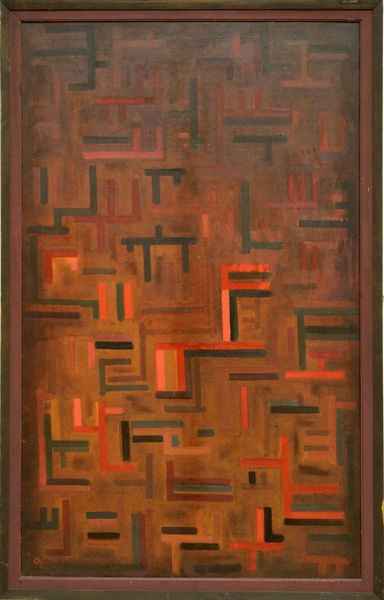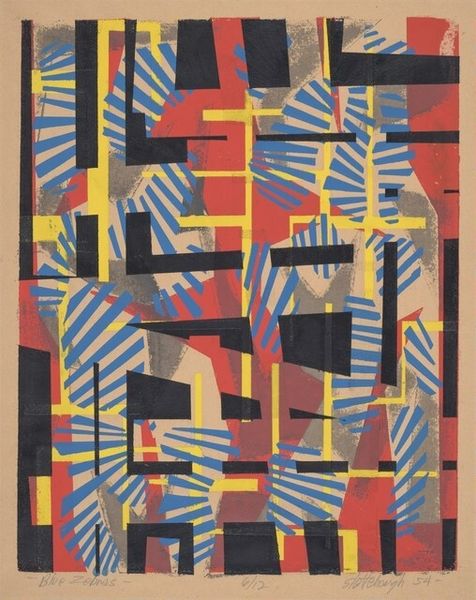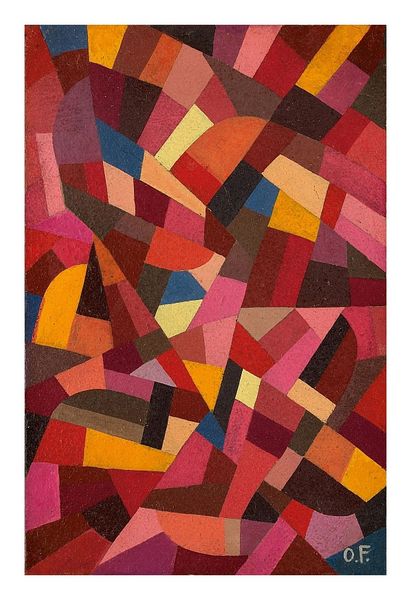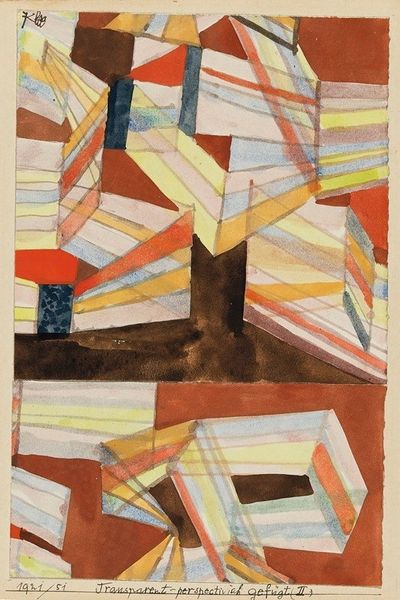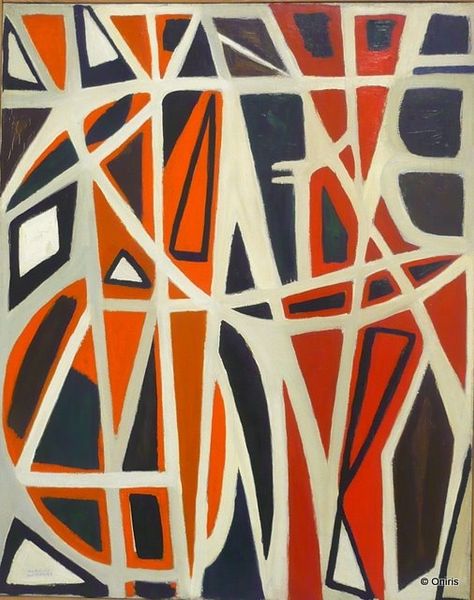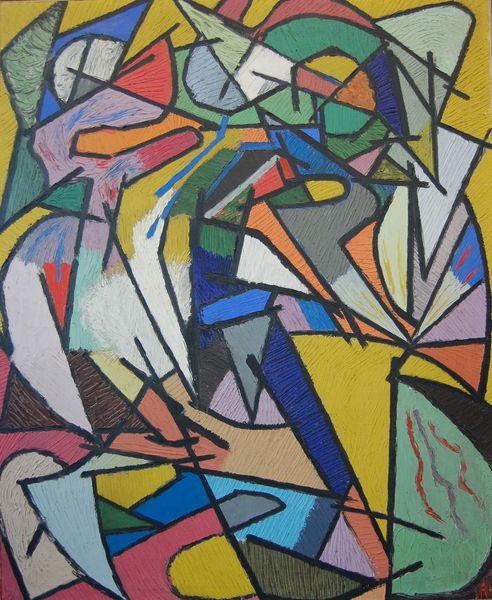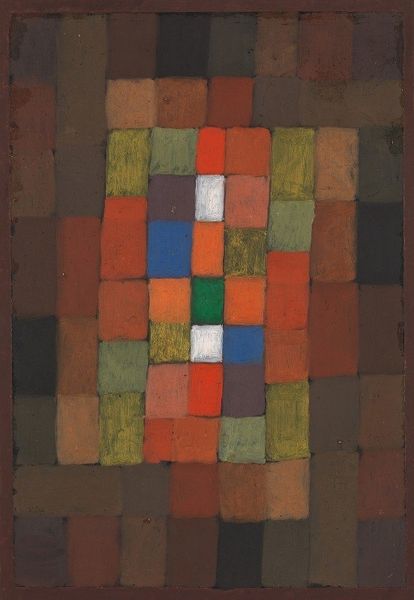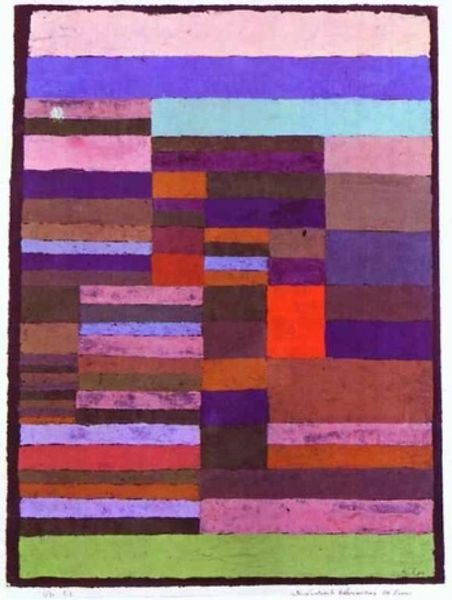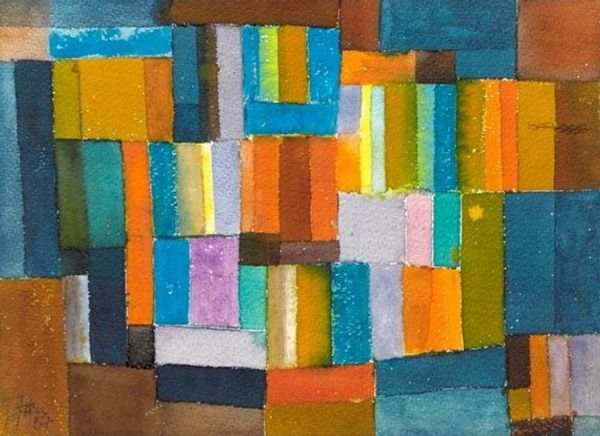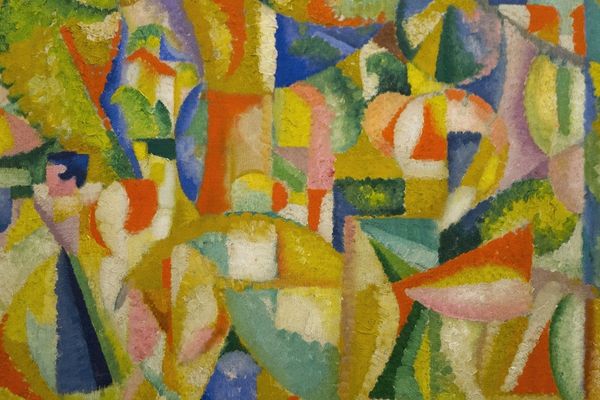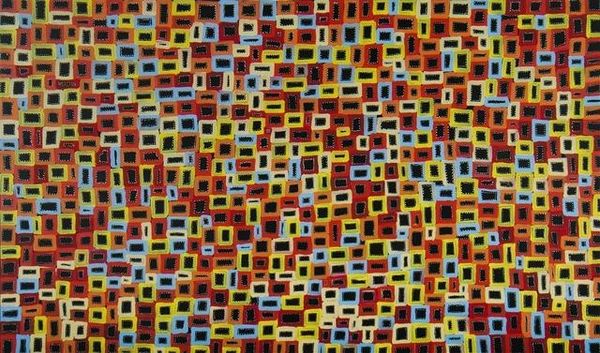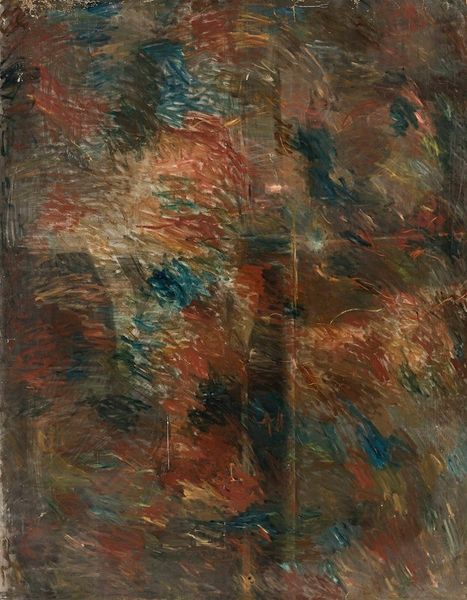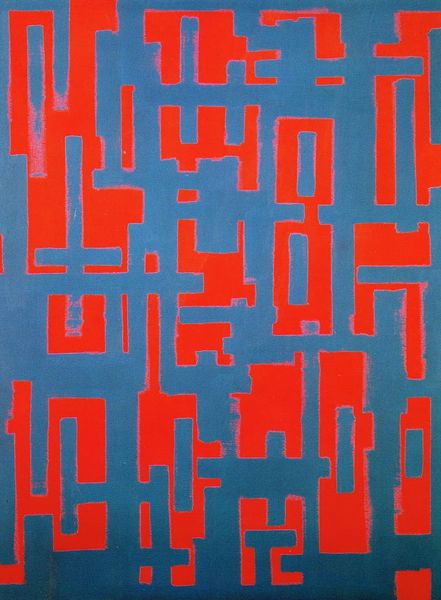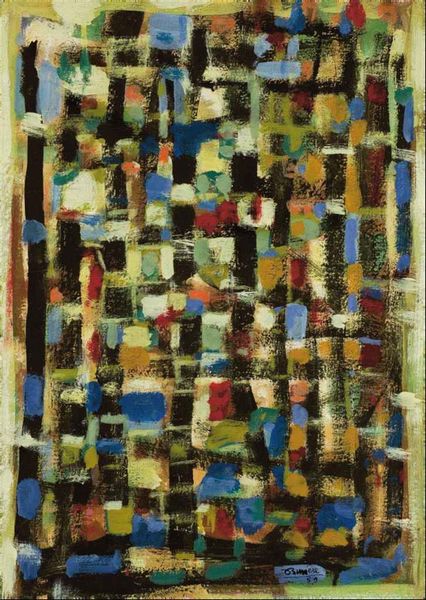
painting, oil-paint
#
cubism
#
abstract expressionism
#
neo-plasticism
#
painting
#
oil-paint
#
abstract
#
form
#
geometric pattern
#
abstract pattern
#
geometric
#
geometric-abstraction
#
abstraction
#
line
Copyright: Public Domain: Artvee
Editor: Here we have Piet Mondrian's "Composizione," created in 1916 using oil paint. At first glance, it feels like a chaotic yet deliberate arrangement of lines and blocks. What do you see in this piece, focusing on its composition? Curator: The structural organization here is paramount. Observe the interplay between the horizontal and vertical lines; how they create a complex grid that dictates the placement and size of the colored planes. Notice also the limited palette of primary colors, which establishes a visual rhythm and order that transcends pure representation. What principles can you identify? Editor: I can see the interplay between the blocks, but the distribution seems arbitrary at first. Is there a system or logic that governs this seemingly random arrangement? Curator: While appearing spontaneous, Mondrian adhered to rigorous geometric principles rooted in Neo-Plasticism. His objective was not to mirror external reality, but to articulate a universal harmony through the simplification of form. It's less about symbolism and more about a reductive process using pure geometric forms. Where do you see points of balance and tension? Editor: I guess I see the balance between the color blocks, but what do you make of the slight variations in line thickness? Curator: Precisely! The variations in line thickness create subtle modulations, preventing the grid from becoming too rigid or static. This creates visual depth. What effect do these structural variations produce on the canvas as a whole? Editor: Now I see, that there's a real sense of dynamic equilibrium across the whole composition, an all-overness that transcends individual elements! Curator: Yes, that is very much the case! And thinking about those relations, this work now invites you to consider all other works differently too. Editor: This exercise truly changed my perspective and understanding of what abstraction is trying to accomplish.
Comments
No comments
Be the first to comment and join the conversation on the ultimate creative platform.
